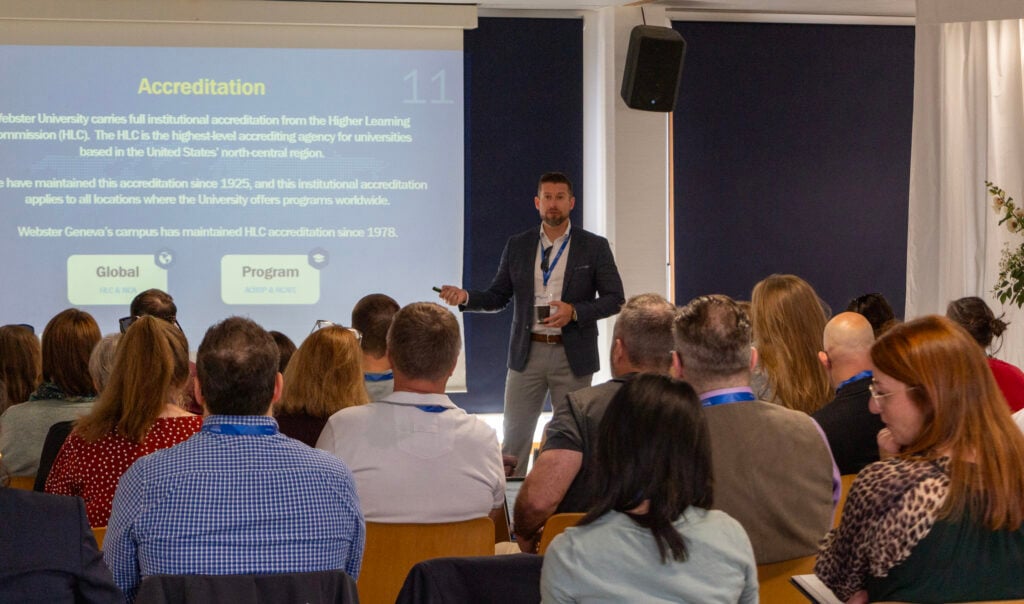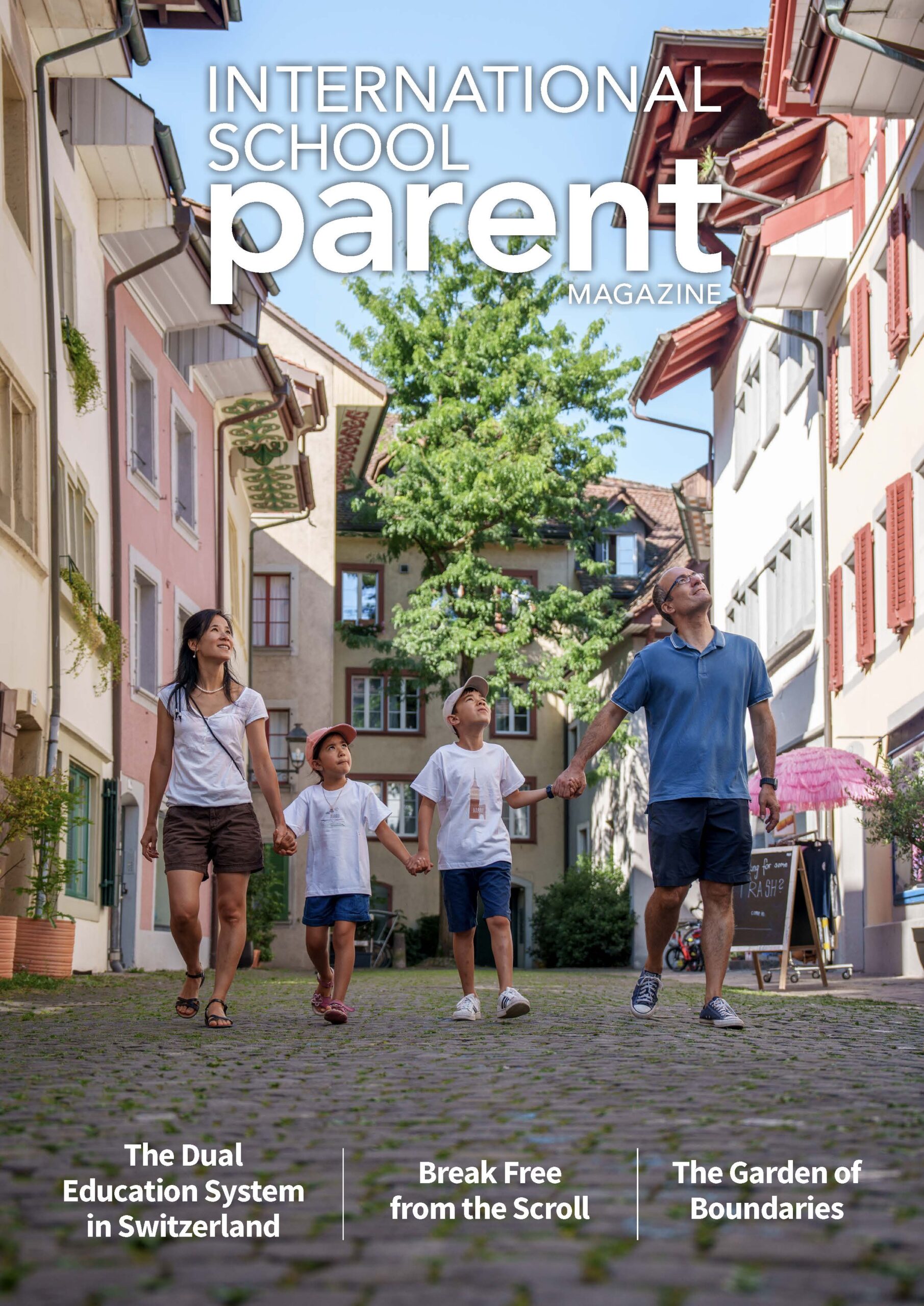Meet the Director General: Dr. Ryan Guffey, Webster University Global Campuses
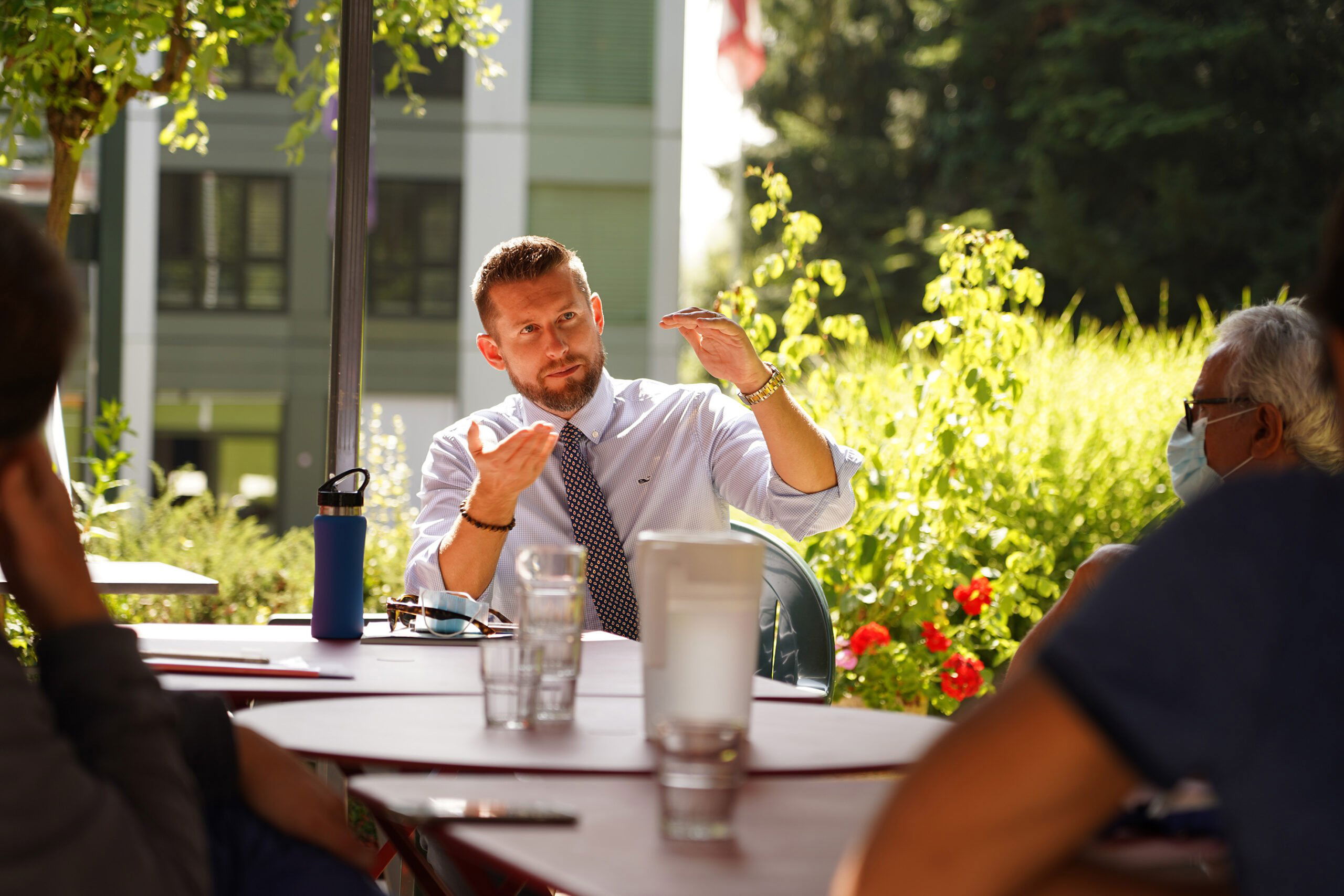
Established in 1915 by the Sisters of Loretto, the institution we now know as Webster University, began with a bold mission – to provide education to women. Over the years, Webster University has continued to lead the way in terms of internationalisation and innovative approaches to learning. These days, Webster University serves over 15,000 students worldwide.
Recently, we had the pleasure of speaking to the Director General for Webster University Global Campuses, Ryan Guffey, about his vast experience, the exciting ways Webster is marrying equality and innovation, and what the future holds for higher education around the world.
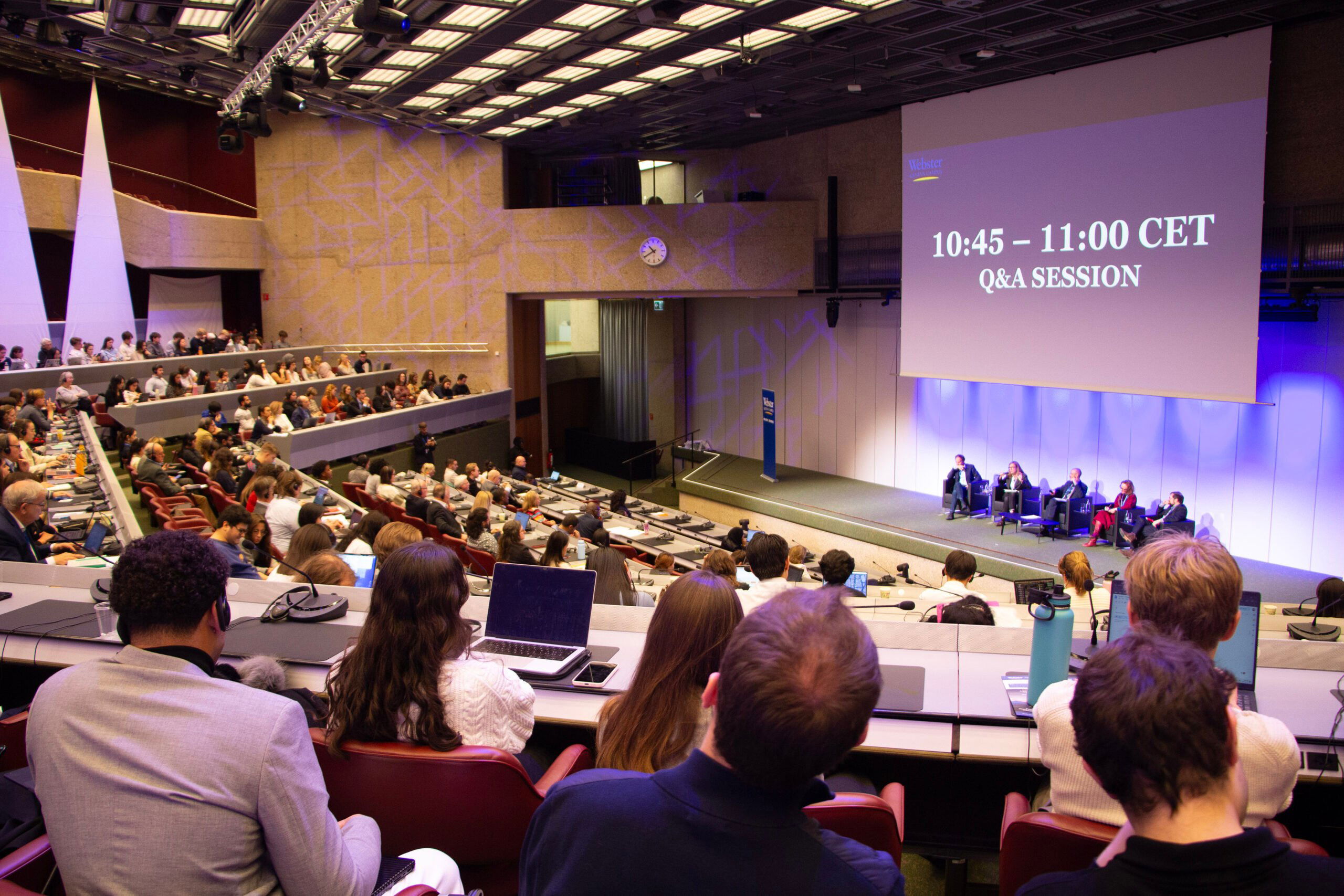
What distinguishes Webster University’s approach to international education compared to other global universities?
Webster University was founded as a liberal arts institution focused on women and Native Americans in the Midwest. It was inspired and informed by providing opportunities to serve an unmet need, at a time where there were many. A number of schools now have this approach, however Webster has been intentional in this mission from the very start. Even as far as 1919 – four years after its origination – Webster was already admitting international students. And then, if you fast forward to the 1990s, we created an online division specifically to include individuals outside the US. Again, bringing opportunities to people that may not otherwise have them.
I would say Webster really made its biggest point of differentiation in 1978 when it opened its first international campus in Geneva, Switzerland. Since then, we have opened at least 17 other locations between nine countries. Additionally, today roughly 50% of the Webster University student body is enrolled outside of the US in our schools in Europe, Africa, and also East Asia.
How has Webster University leveraged its partnerships with organisations like the UN and Red Cross to enhance student learning experiences?
I have to say that one of the greatest benefits of having campuses in cities like Vienna, Leiden, and Geneva, is that students have the opportunity to live with their fields of study. What this means is that the cities themselves are their classrooms. For example, in Geneva, the international relations students regularly secure internships at the United Nations and permanent missions. Having these real-world experiences really makes a significant impact on career exploration and preparation.
The “Explore Series” offers off-campus events designed to immerse students in Switzerland’s culture. What impact has this programme had on students’ overall educational experience at the Geneva campus?
As we have such a large population of students that come from outside of Switzerland, it is extremely important to us that we provide an immersive programme, not only into Swiss culture, but also into history, geography, linguistics, politics, and economics of the region.
Every term, we have a range of excursions for students. Some of these trips repeat year over year, however we try to add new things so that returning students continue to gain enriching experiences.
We want our students to understand that it’s not just learning the lay of the land, it’s also learning and bonding with their peers – the people that will potentially form their personal and professional networks long past graduation.

What are the benefits and potential challenges of the Mobility Programme for students and faculty across the university network?
Something that is quite distinctive about the student and faculty mobility programme is the fact that it is both internally and externally funded. Through this funding we are able to pay for students’ round trip flights to one of our other campuses for a period of study. An additional benefit is that programme participants continue to pay their home campus tuition fees while abroad. This means that, for example, a student from our Athens location is able to attend our Geneva campus where fees are higher, whilst maintaining the Athens tuition rate. We believe that money should not stand in the way of education and important multicultural and multinational experiences.
We carry similar programmes between our locations but we try not to mirror every aspect of the degree programmes in every location. This encourages the movement of students between campuses, offering differentiated specialisation.
Let’s say I’m a student studying international relations and I want to focus on security studies. In Europe, the Vienna campus has more security studies faculty and therefore it would make sense that I might spend some time there taking advantage of the high profile specialists there. Similarly, If I was studying human rights, I might go to the Leiden campus to access the opportunities at the Hague.
How does Webster University balance its non-profit mission with its extensive global expansion and partnerships?
We operate as a nonprofit organisation across all of our campuses and ventures. This means we are not focused on huge profit margins. In actuality, the vast majority that we make is reinvested in the university. What surplus we do have goes into an endowment, which then funds other projects.
In some locations, we completely own and operate our school and in others we have chosen to partner with another university. However, in those cases we are partnering with other nonprofit institutions. While we certainly operate in a commercial environment, everything is centred around returning the investment to our students.
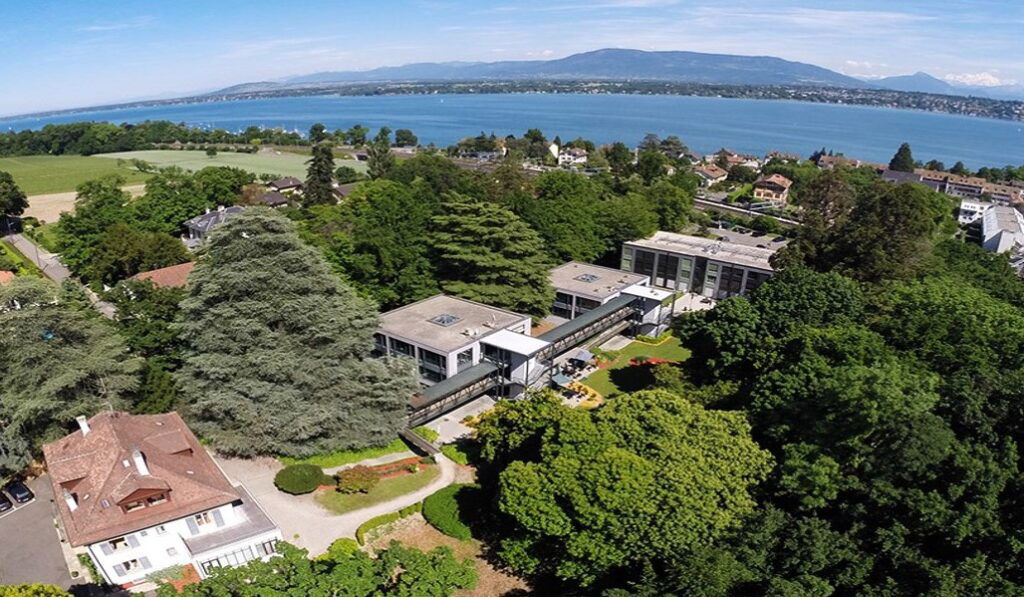
What role does the Webster Alumni Association play in fostering long-term engagement with graduates?
Webster University has a little over 200,000 alumni worldwide. As I mentioned earlier, the Geneva campus started in 1978, and therefore has several thousand graduates. While we do operate a universal alumni system and provide a number of opportunities applicable to all alumni regardless of the campus they attended, we have campus-specific Alumni groups as well.
We never ask anything of our alumni other than to invest their time and interest. If they choose to contribute, we are grateful for their donation toward student learning, but typically their support is opening doors. By staying connected, we are able to access corporations to talk about our new degree programmes, internship and scholarship opportunities and so on.
We host regular in-person meetings with alumni in cities around the world, as well as hosting online meetings. Whatever the format is, our goal is to keep alumni regularly updated on the future of our university. Often, they offer to help their alma mater, which means so much to them.
How has Webster University adapted its academic offerings to meet the needs of students across diverse cultural and geographical locations?
When we talk about our general curriculum we describe it as the global citizenship programme. Whichever subject our students study, we always ensure it is taught with an international focus. This perspective is at the core of all of our programmes, whether bachelors or masters.
As a liberal arts institution, global citizenship is essential. But at the same time, economies and markets change, so to do the needed inputs and outputs that are reflected in the degree programmes on offer. With this in mind, we regularly undertake curricular reviews where we ask the question “What can a student do with this when they’re done?” Within this, we look at the sectors they may work in, which countries have a need for professionals in that area, and so on. Then, if we are not aligned in some way, the curricular revision process continues and the programme is updated. It is fair to say that we are both very market-reflexive and at the same time true to our international mission.
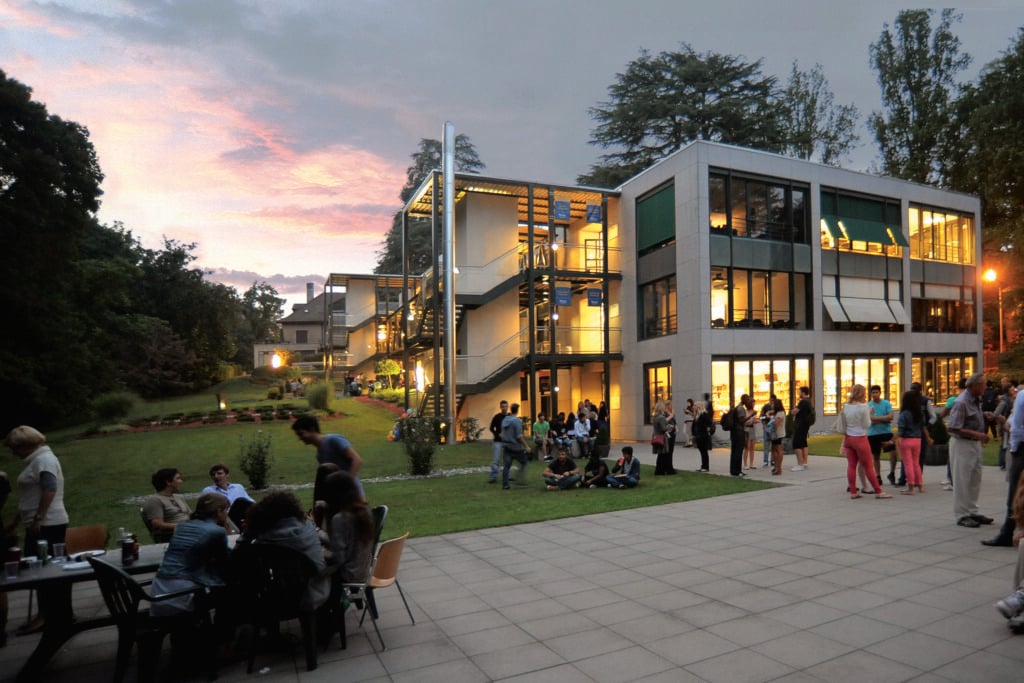
How has your diverse academic background influenced your leadership approach?
Having studied an array of disciplines, I believe I have sought a holistic view, both of the people that I work with, but more importantly the people that I serve. To me leadership is an amalgamation of your experiences, drive, and willingness to address the things that are most critical for your constituents and organisation.
How do you envision the future of global education, and what role do you see Webster University playing in that landscape?
Globalisation brings us closer together. As a result, the future of international higher education is fewer barriers, more access, increased opportunities, and finding more affordable ways for education to be delivered.
We know that these days, with the accessibility of online resources, a student can have a world-class education from their bedrooms. This means that to get students to actually walk out the door and want to be part of a physical learning environment, universities will need to provide increasingly justifiable reasons for them to do so. I think competition is going to continue to increase and that competition between on and off-line education is good for the industry, sector, and ultimately good for the students.
